So, you’d like to keep backyard chickens? You’re reading all you can to learn what you need to know to get started, you have bought all the books and are scouring the Internet hoping to absorb the most important information. That’s a great start, but some lessons are painful and expensive to learn by experience, so in the hope of sparing some growing pains for those about to embark on chicken-keeping, I have asked my Facebook fans what they wish they had known before they began keeping chickens. The following are some of their replies and a few of my own.
Three words: JUST DO IT!
Check your local ordinances and zoning code regulations to make sure you can keep chickens legally. Don’t assume that it’s legal just because others in the neighborhood are doing it. Research whether there is a limit on the number of chickens, a permit required for a coop, whether are roosters allowed or any other restrictions. Don’t be afraid to petition local government to change the law to legalize chicken-keeping!
Do your homework…chickens are a serious commitment.
Buy from a reputable breeder or hatchery, not an auction or swap if at all possible. Have what they need before they arrive.
A hen does not necessarily lay an egg every day. There are many factors that play a role in egg-production– some can be influenced by you, but others cannot.
Do it right the first time and don’t cut corners. Get/build a bigger coop than you think you want/need. Chicken Math is a force to be reckoned with.
Coop placement is important. (shade in summer, dry location in rainy climates) Make the coop and run “people friendly” to make cleaning and maintenance easier.
Don’t plan on just getting a few… it’s an addiction. There will always be more than you expected.
Even when purchasing female chicks, (aka: sexed) vent sexing is only 90% accurate. Have a plan for roosters that cannot be kept.
Make sure you have a well stocked first aid kit and an area where sick or injured birds can be kept away from the flock.
Chicken wire will not protect chickens from predators, only hardware cloth can.
Research the different breeds as some do better in the heat, some do better in the cold, some lay more eggs than others, some are more inclined to brood and some are more or less friendly than others.
Put sand in the run to keep it from getting muddy. Using sand for litter inside the coop makes cleaning it much easier and creates a healthier environment for the chickens in all climates.
That chicken scratch is NOT chicken feed and obesity is a major problem in backyard chickens.
Always have an escape plan from inside the chicken coop and run. If there is any way to get locked inside, it will happen when it is least convenient. The pink rope on the latch to this run door opens the latch from inside the chicken run.
Mulch in landscaped beds doesn’t stand a chance. Chickens will take dust baths in the location you least want them to.
How much I would love them and how much they would change my life. Wish I had had chickens years ago!
And a personal favorite, from Tiffany M.: “Make sure they are signed up for your blog and ‘like’ you on Facebook.”☺
Kathy Shea Mormino
Affectionately known internationally as The Chicken Chick®, Kathy Shea Mormino shares a fun-loving, informative style to raising backyard chickens. …Read on


shop my SPONSORS
So, you’d like to keep backyard chickens? You’re reading all you can to learn what you need to know to get started, you have bought all the books and are scouring the Internet hoping to absorb the most important information. That’s a great start, but some lessons are painful and expensive to learn by experience, so in the hope of sparing some growing pains for those about to embark on chicken-keeping, I have asked my Facebook fans what they wish they had known before they began keeping chickens. The following are some of their replies and a few of my own.
Three words: JUST DO IT!
Check your local ordinances and zoning code regulations to make sure you can keep chickens legally. Don’t assume that it’s legal just because others in the neighborhood are doing it. Research whether there is a limit on the number of chickens, a permit required for a coop, whether are roosters allowed or any other restrictions. Don’t be afraid to petition local government to change the law to legalize chicken-keeping!
Do your homework…chickens are a serious commitment.
Buy from a reputable breeder or hatchery, not an auction or swap if at all possible. Have what they need before they arrive.
A hen does not necessarily lay an egg every day. There are many factors that play a role in egg-production– some can be influenced by you, but others cannot.
Do it right the first time and don’t cut corners. Get/build a bigger coop than you think you want/need. Chicken Math is a force to be reckoned with.
Coop placement is important. (shade in summer, dry location in rainy climates) Make the coop and run “people friendly” to make cleaning and maintenance easier.
Don’t plan on just getting a few… it’s an addiction. There will always be more than you expected.
Even when purchasing female chicks, (aka: sexed) vent sexing is only 90% accurate. Have a plan for roosters that cannot be kept.
Make sure you have a well stocked first aid kit and an area where sick or injured birds can be kept away from the flock.
Chicken wire will not protect chickens from predators, only hardware cloth can.
Research the different breeds as some do better in the heat, some do better in the cold, some lay more eggs than others, some are more inclined to brood and some are more or less friendly than others.
Put sand in the run to keep it from getting muddy. Using sand for litter inside the coop makes cleaning it much easier and creates a healthier environment for the chickens in all climates.
That chicken scratch is NOT chicken feed and obesity is a major problem in backyard chickens.
Always have an escape plan from inside the chicken coop and run. If there is any way to get locked inside, it will happen when it is least convenient. The pink rope on the latch to this run door opens the latch from inside the chicken run.
Mulch in landscaped beds doesn’t stand a chance. Chickens will take dust baths in the location you least want them to.
How much I would love them and how much they would change my life. Wish I had had chickens years ago!
And a personal favorite, from Tiffany M.: “Make sure they are signed up for your blog and ‘like’ you on Facebook.”☺



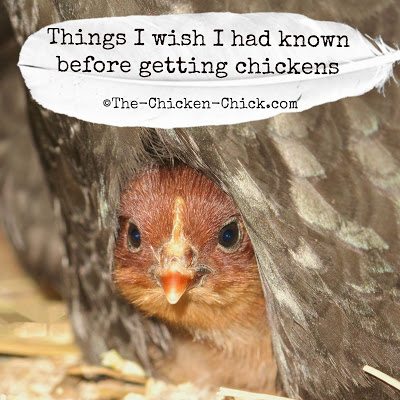
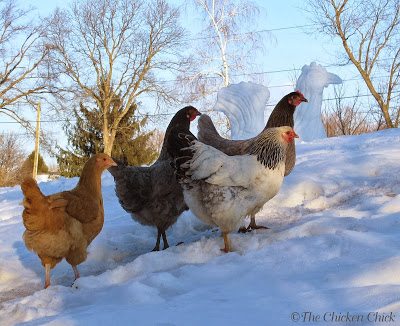
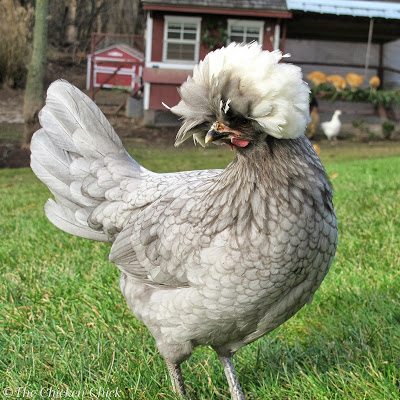
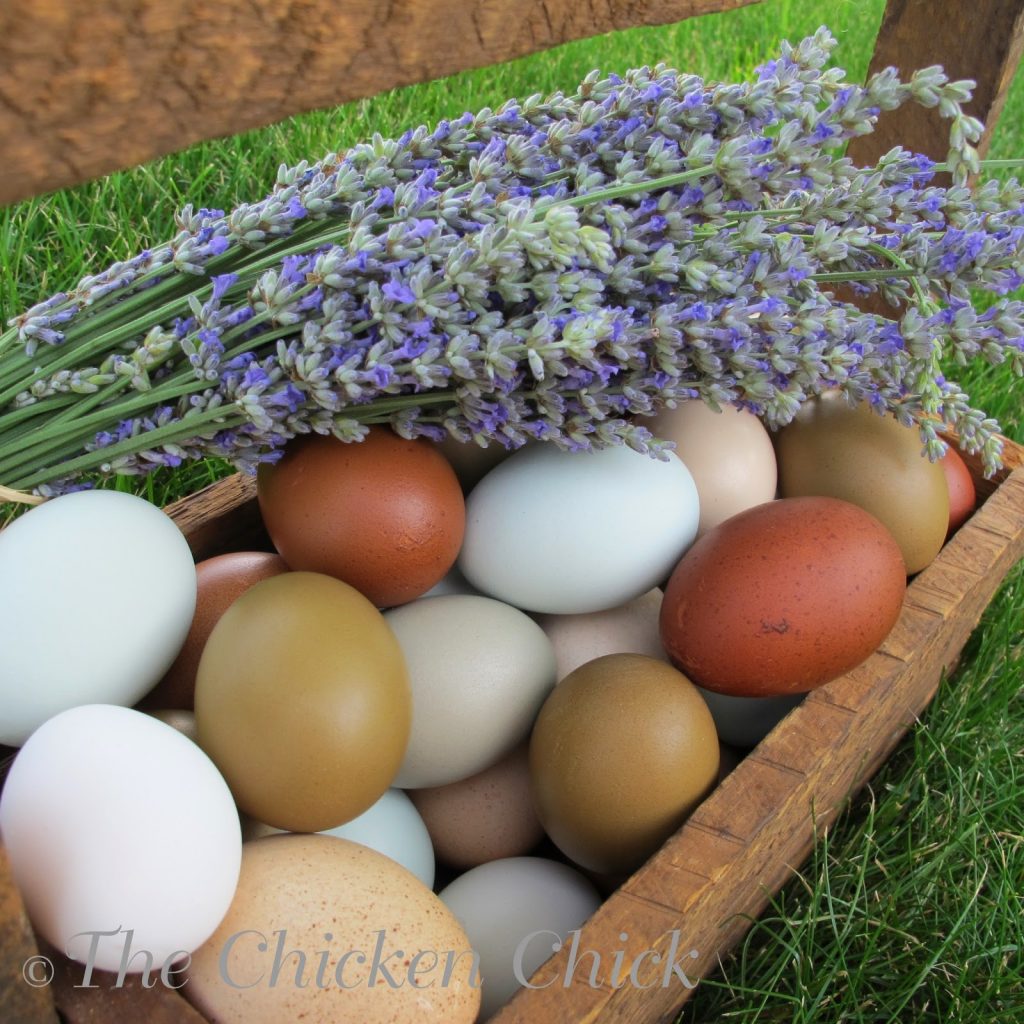
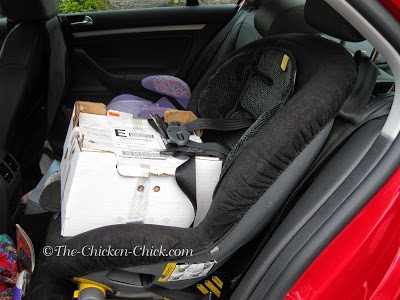
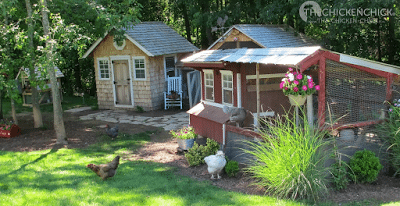
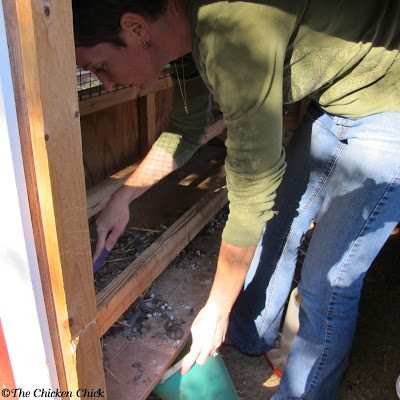
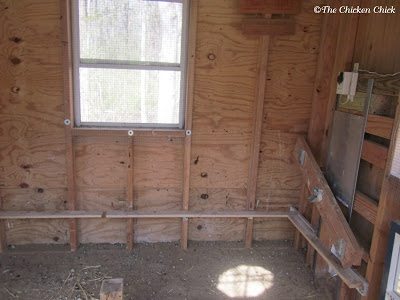
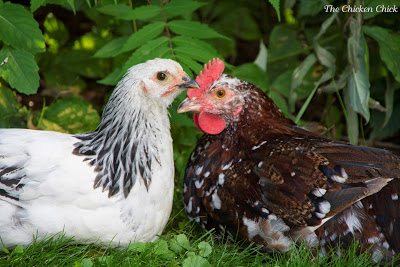
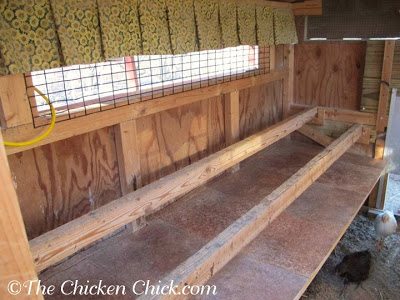
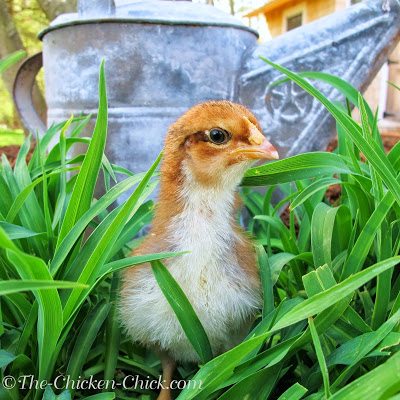

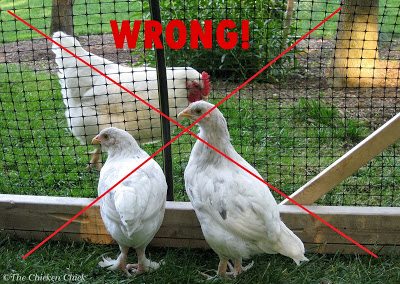
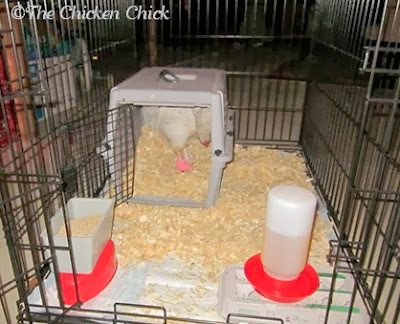

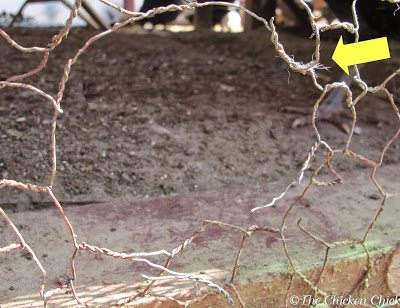

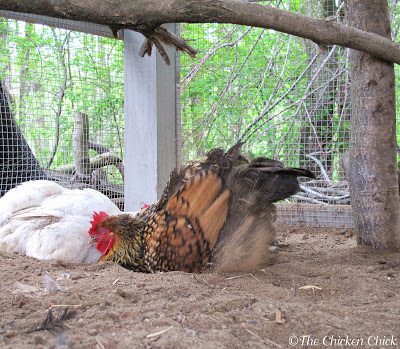
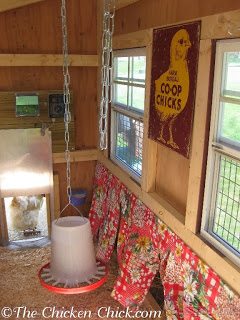
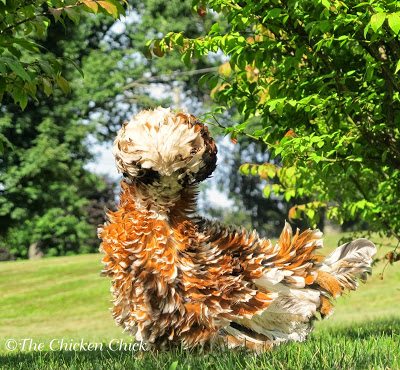
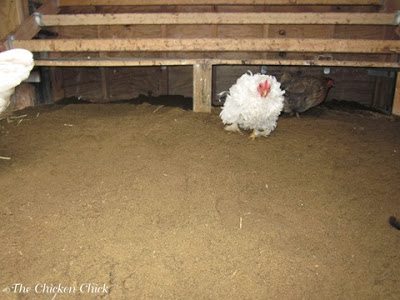
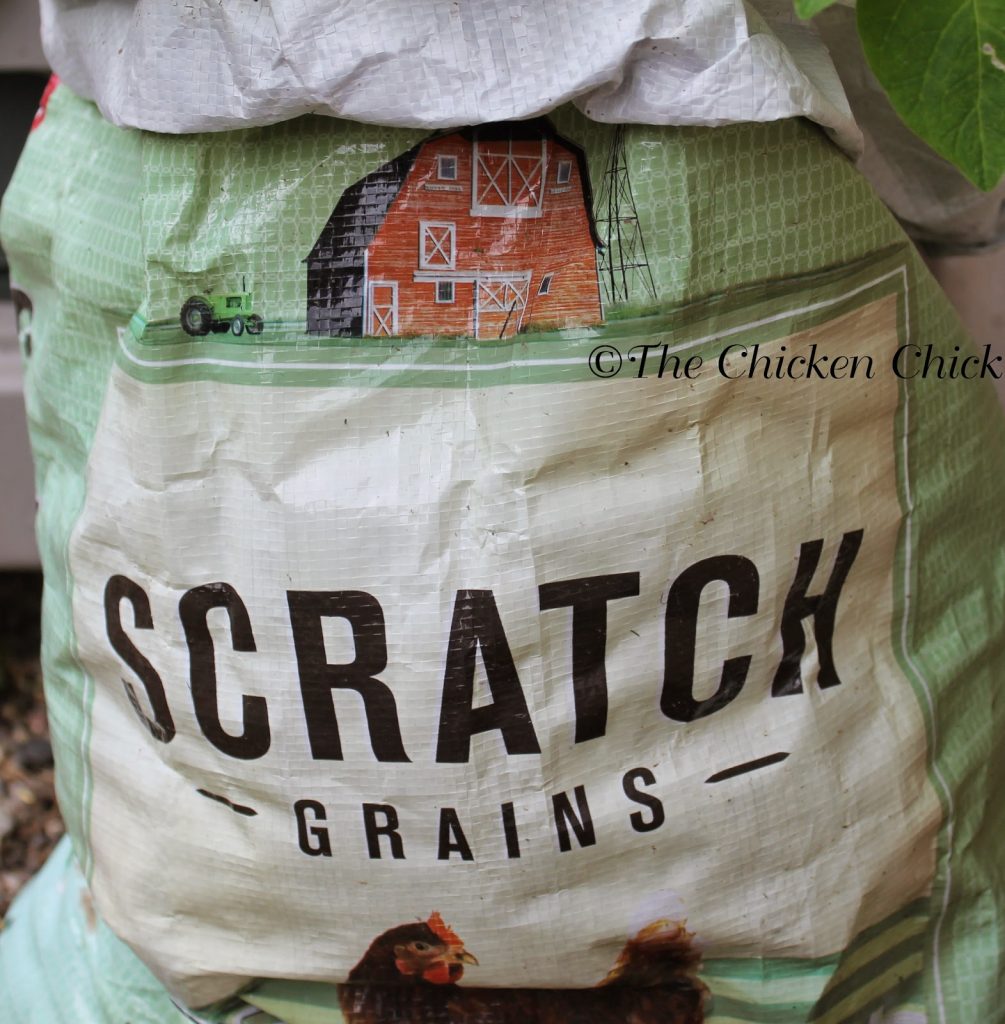
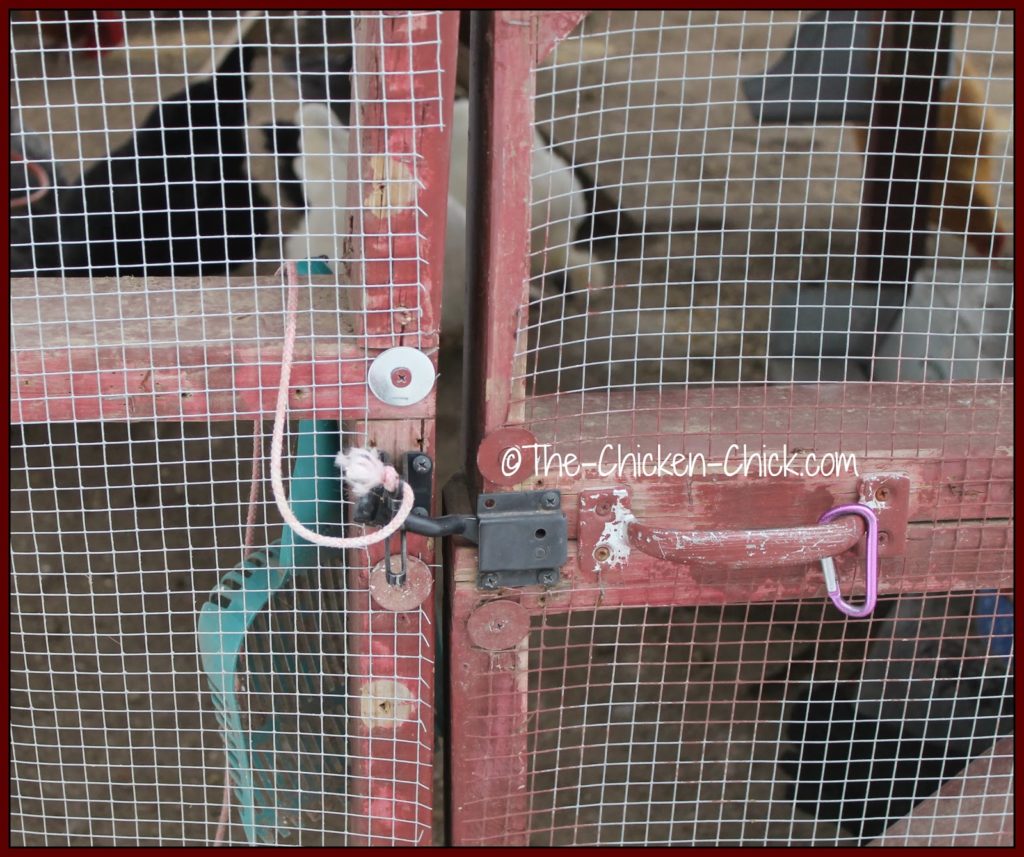
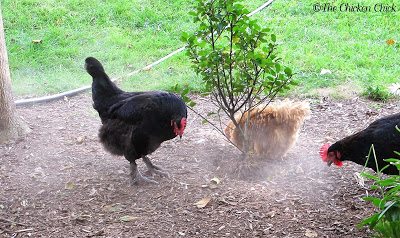
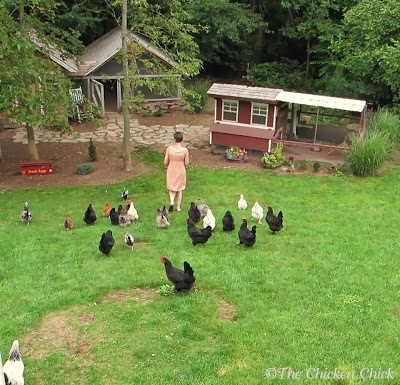
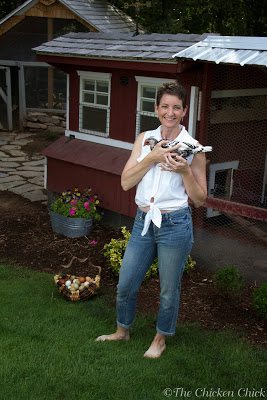






















I disagree, Ray. I have always fed my flock scraps that we didn't consider edible, including moldy, wilty and past prime foods. They loved it and I never had a sick bird. We also kept a compost bin for things they didn't like to or shouldn't eat, like onions.
I wish I had known that chickens will eat gourds. I planted birdhouse and dipper gourds along the south side of our chicken run, for shade and because I wanted the gourds. The chickens ate every last gourd, but didn't bother the vines.
I am reading "raising chickens for dummies". I hope to buy a coop/ hubby build one (if time permits-of which I don't see happening). I have a concern with, in the early spring/early summer we get in dark moist areas on our back deck "earwigs" living under things. So I am now nervous to bring a coop with sand in the back yard area now. I have got them in our shed on the floor under things. Of which I want to put coop beside the shed area. Can you help me with any ideas or have you experienced anything… Read more »
my hens love old strawberries and wilty lettuce.. i don't feed them anything with mold on it, etc.. and i cut rinsed grapes in half (or they try choke them down whole). they love the variety. they like things like cucumber halved or watermelon – things they can peck at – keep them entertained in the winter too :)
Wish I had known about the yearly fall molt (scared me!), very few eggs in winter, and how to merge a new bird into the flock without having the other birds attack it :)
I wish I had known that raising chicks in the woods is an ongoing battle against predators and there is a long list of health problems that chickens are prone to get.